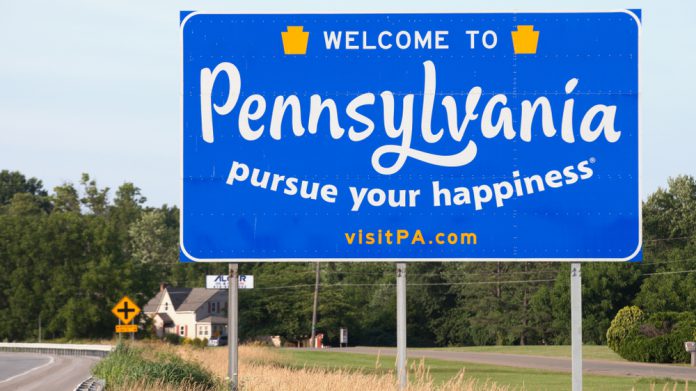As Pennsylvania’s budget deadline approaches, lawmakers remain divided on how to regulate and tax skill game machines, terminals that resemble slots but are currently unregulated.
The latest proposal, House Bill 1619, introduced by Rep. Kerry Benninghoff, has drawn attention as it calls for no tax on skill games at all.
House Bill 1619 stands out as a notable contrast to other active bills, which propose taxes ranging from 16% to 35%. Meanwhile, Governor Josh Shapiro has proposed a 52% tax rate, similar to the one on slots.
With one week left, the lack of consensus threatens to undermine the state’s chances of finally regulating skill game terminals.
What Are Skill Games?
Skill game machines visually resemble slots, but manufacturers argue they don’t qualify as “gambling” because they include a skill element.
As the legal definitions of the term in Pennsylvania include the phrase “games of chance”, incorporating an element of “skill” allows the machines to operate outside gambling regulations.
For years, these machines have operated across gas stations, convenience stores, and bars in a gray area without oversight. Multiple organizations, such as Pennsylvania Against Gaming Expansion, have come out in support of regulation.
While lawmakers were previously split between banning and regulating them, the current trend is towards regulation, but it remains unclear how.
HB1619 Looks to Regulate But Not Tax Skill Games
The central talking point of HB 1619 is that it won’t tax the machines. While it acknowledges existing obligations such as sales and personal income tax, it adds,
“No additional taxes or fees, including amusement taxes, shall be imposed on the placement or operation of a skill game or on the revenue generated by a skill game terminal unless specifically authorized under this act.”
The proposal tasks the Pennsylvania Department of Revenue with governing the machines, including licensing and law enforcement. All existing terminals will be grandfathered.
Each license will be for 10 years, with costs varying depending on the entity:
- Distributor: $50,000
- Operator: $5,000
- Establishment: $250
Renewal fees will remain the same for establishments, but drop to $25,000 for distributors and $1,000 for operators.
Other provisions include a limit on the machines. However, the exact language is left for the Department of Revenue (DOR) to determine after all current terminals are grandfathered and licensed.
Tax Proposals: 16% to 52% Skill Game Tax
While Rep. Benninghoff believes that skill games don’t require additional tax, other lawmakers disagree.
Sen. Gene Yaw, a long-time pro-regulation advocate, reintroduced a bill in April. His plan calls for a 16% tax on skill games. Yaw cited that a higher tax would threaten small businesses, which heavily rely on revenue from skill terminals.
The legislation tasks the DOR with licensing and distribution, but the Bureau of Liquor Control Enforcement will enforce the rules. Yaw introduced a similar bill in the 2023-2024 legislative session, but it failed to move past committee.
On the other spectrum is Gov. Shapiro. He’s been calling for a 52% tax, closer to the 54% tax currently levied on casino slot machines. The casino industry has also opposed the lack of regulation and has even requested that its taxes be lowered as a result.
Shapiro included skill game machines in his 2025/2026 budget address. Provisions of his plan include a limit of 5 terminals per location and a cap on the total number of machines. He also calls for the Pennsylvania Gaming Control Board, which oversees legal gambling in the state, to regulate them.
In between is Senator Chris Gebhard’s proposal, which includes a 35% tax. It calls for similar licensing terms and costs to Rep. Benninghoff’s proposal. At the same time, it tasks the Pennsylvania Gaming Control Board with regulation, similar to Gov. Shapiro’s plan.
Could PA Finally Clarify the Legal Status of Skill Games?
Pennsylvania is home to thousands of unregulated skill game machines. With legislative efforts to address this loophole failing, the machines are fouind in gas stations, bars, and convenience stores statewide.
Skill game manufacturers, particularly Pace-O-Matic, have secured some notable legal victories that have strengthened their position.
In February 2023, a county judge ruled that the company’s machines, which state authorities had previously seized, did not qualify as gambling devices.
In December 2023, an appellate court upheld the decision, but that decision did not clarify the terminals’ status; it simply determined that they’re not games of chance.
The Pennsylvania Supreme Court could finally provide that clarity. After initially declining to weigh in, the Court agreed in June 2024 to hear the state authorities’ request to appeal the appellate Court’s decision from the previous December.
A year later, the Pennsylvania Supreme Court has yet to issue a decision. However, if the machines do not make it into the next budget, a court decision could ultimately determine their status in Pennsylvania.













